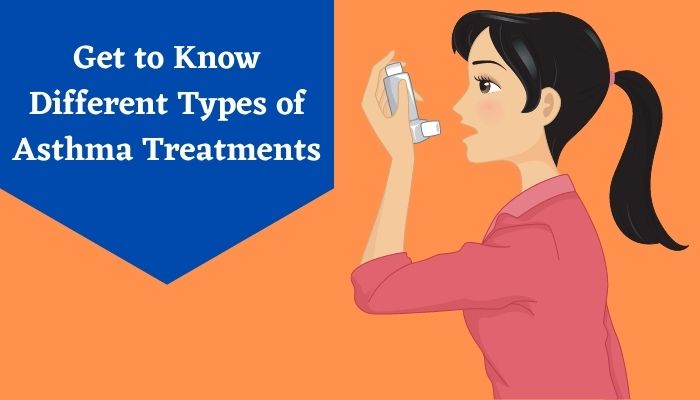Asthma is a condition that affects the respiratory tracts causing inflammation, swelling, and excessive mucus production that interferes with breathing.
The attacks can be mild for some people. However, in other instances, the attack can result in life-threatening conditions.
Asthma treatments are available in many forms. They can be prescribed asthma medications for severe asthma attack treatment or require over-the-counter medication to subdue mild attacks.
Asthma treatment methods and medications
Asthma treatments can be long-term solutions or asthma medications that quickly affect the body to relieve discomfort and facilitate breathing. Some people may even have a combination of the two for both short and long-term effects.Here are the different types of asthma treatment medications that you can use:
1. Inhalers and asthma medications that offer quick relief
Inhalers are asthma treatments that quickly relax the muscles blocking the airflow and helping you breathe. They can be of various types such as:
- Beta-antagonists act upon your asthma using albuterol, levalbuterol, and epinephrine.
- Oral corticosteroids reduce the swelling.
- Anticholinergics reduce mucus production, thus easing the airways.
- Combination of beta-antagonists and anticholinergic medications.
Your physician may also suggest biologics that target cells or proteins in the form of shots every few weeks. There are also leukotriene modifiers and cromolyn that help control the aspects that trigger asthma attacks.
You can also find Theophylline tablets and capsules along with Bronchodilators for long-term effects to loosen the muscles that restrict airflow. If none of these inhalers and asthma medications works to provide you with long-lasting relief, your physician may prescribe corticosteroids for your asthma treatment.
These quick-action asthma medications are useful for unprecedented asthma attack treatments.
2. Long-term nebulizer for asthma
A Nebulizer for asthma is a device that converts the liquid asthma medication into a mist, so it enters your lungs easily.
Nebulizers come in masks or even a mouthpiece with a long cylinder. You can attach the inhalers to the nebulizer for asthma treatments and inhale the medications smoothly. They are viable and useful devices for asthma attack treatments in adults and children, even infants.
Physicians usually recommend using these nebulizers for asthma daily or weekly to control the triggers that may result in an asthma attack. They are long-action methods for asthma treatment for most people with severe asthma problems.
You can also use them as quick-action inhalable asthma medications if you cannot use the inhalers directly.
3. Best medicine for asthma and allergies
Often, an asthma attack may result from the inflammation in your respiratory tract caused by allergies. In such cases, you can still use inhalers and corticosteroids for asthma attack treatment. Still, the best way to control the symptoms and provide relief is to combine it with the best medicines for asthma and allergies.
These medications for asthma treatment come in various forms:
- Immunotherapy is an excellent option for those who suffer from mild allergic reactions or moderate ones. Immunotherapy allergy medications can be acquired in shots administered by medical professionals. These shots are comprised of anti-allergen substances that prevent the airways from flaring up and control excessive mucus secretion. They also come in the form of tablets that you can consume. You can acquire some pills for mild allergies from a local pharmacy since they are available over the counter. For moderate allergies, physicians usually prescribe tablets like Ragwitek, Grastek, and Oralair in the form of shots to control the triggers that influence asthma from an allergic reaction. These methods are not designed to aid in severe allergic reactions that inspire terrible asthma attacks. Thus, if you experience extreme air congestions while having allergic reactions, you need to opt for antibodies to control the allergies.
- Introducing antibodies in your system prevents the cells from inflaming when you have an allergic reaction. These medications are administered by medical professionals every 2-4 weeks to help deliver long-term asthma attack treatment. They come in shots of biologic injections constituting Mepolizumab, which targets blood cells that usually instigate asthma attacks. They help control the number of asthma attacks you incur over time, thus reducing the need to ingest asthma medications.
- Alternative supplements of Vitamin D or anti-allergy medications can also help. They reduce the inflammation in your respiratory organs and facilitate smooth airflow into your system. Even though asthma cannot be completely cured, asthma treatments can help reduce the number of asthma attacks you get periodically. It is best to seek medical advice for long-lasting asthma treatments for moderate to severe asthma attacks that occur frequently.

